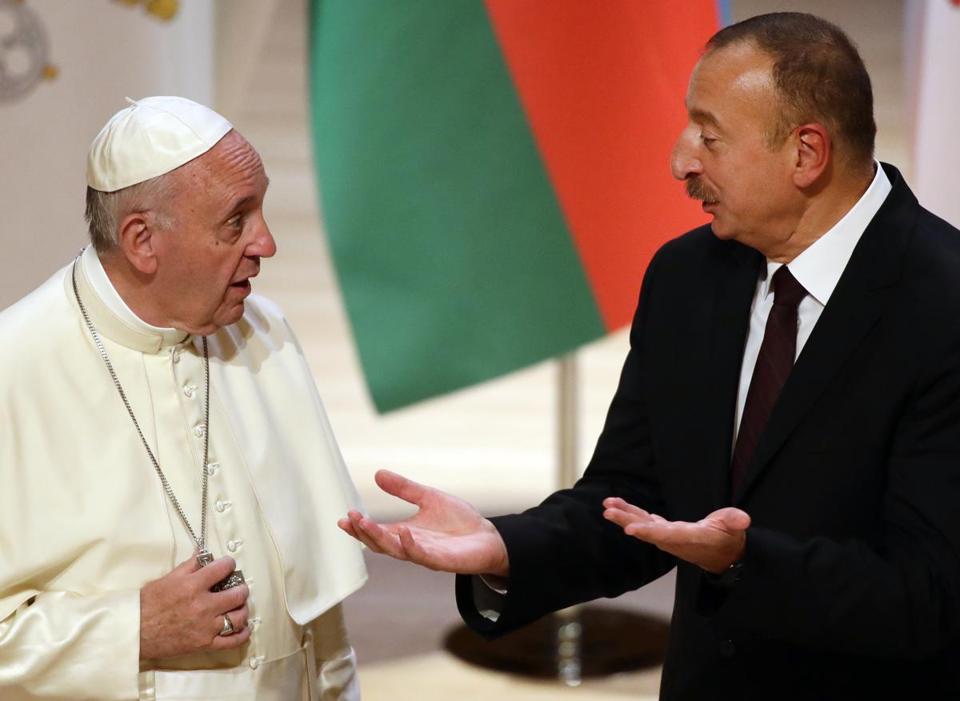
Pope Francis, the spiritual leader of Catholic Christianity and head of Vatican City, made the last stage of his South Caucasus visits to Azerbaijan. His 10-hour visit to Azerbaijan was the shortest of the three visits to the South Caucasus countries. In the previous commentary the expectations of the people of Azerbaijan from Pope Francis were analyzed. Below we can look how these expectations were met.
Firstly, Azerbaijanis monitored Pope Francis’s visit to see if he continued to overlook the historical suffering of Muslim people at the hands Christian people. They specifically wanted to see if the Pope would mention the Khojaly Massacre committed by Armenian groups during the Karabakh War. Unfortunately, he did not. He did not call for the Armenians in Armenia to come to terms with the crimes committed against Azerbaijanis. What is even more perplexing is that Pope Francis did not even bother to allude to the Khojaly Massacre.
Secondly, the Azerbaijanis awaited for a call from Pope Francis for an end for the occupation by Armenia for the Nagorno-Karabakh region and the adjacent seven regions of Azerbaijan. Unlike the case with the Khojaly Massacre, Pope Francis did allude to occupation by Armenia. However, the end result for the Azerbaijanis was similar to his omission with the Khojaly Massacre. It was a disappointment because his reference resembled more of an omission. Pope Francis made the following statement: "There is no alternative to patiently and assiduously searching for shared solutions by means of committed and sustained negotiations… to the many people who suffer the effects of bloody conflicts."[i] In Armenia he had stated:
I will speak to the Azerbaijanis about the truth, of what I have seen, of what I feel. I will encourage them too. I have met the President of Azerbaijan and have spoken with him. I will also say that not making peace on account of a small patch of land – because that is all it is – means something grim . . . But I say this to all, Armenians and Azerbaijanis. Perhaps you aren’t agreed on the modalities of peacemaking, and this you have to work on.[ii]
Even though it was not as derogatory as his speech in Armenia, his speech in Azerbaijan only called both sides to the negotiation table. This is an unfortunate implication by Pope Francis as if the burden of responsibility of the occupation of Azerbaijan territory rests on the shoulder of both sides.
Thirdly, despite his claim to be in a “pilgrimage of peace”, the Azerbaijani people were not able to actually feel the heartfelt closeness that for example the people of Armenia or Georgia could feel in his visit to those two countries. In Georgia, for example, he did make a reference to the Christian Orthodox Georgians who were displaced and became refugees after the 2008 war. In Azerbaijan, despite President Ilham Aliyev statement that the Azerbaijani people had “…faced a humanitarian catastrophe…” during Nagorno-Karabakh conflict, Pope Francis remained silent about the Azerbaijani refugees victimized by the Karabakh conflict.[iii]
Fourthly, what is interesting is that there was a message Pope Francis was interested in delivering to the world. Yet it was not a message to the whole world. The message he wanted to deliver wasn’t to the Christian world. He wanted to address the violence committed in countries in which Islam is predominant. He stated that “We see the growing emergence of rigid and fundamentalist reactions on the part of those who, through violent words and deeds, seek to impose extreme and radical attitudes which are furthest from the living God”.[iv] The message here is open to interpretation that it was to condemn the persecution of Christians and non-Muslims by the de facto “State” in Iraq and “Syria”.[v]
The appropriateness of such a message, of a Christian leader, to the Muslim Word, in one of the most secular state with a predominantly Muslim population deserves to be questioned.
By finishing his Azerbaijan visit, Pope Francis has concluded his final visit in the South Caucasus. In his trip to Azerbaijan, his messages unfortunately lacked character and depth. They neither offended the people of Azerbaijan, nor did they make them feel warm hearted. He did not address the injustice the Azerbaijani people have suffered over the years in the region at the hands of their neighbors which Pope Francis had visited a short while ago.
Over the course of five month Pope Francis has visit all three South Caucasus countries. During these visits, at times he provided the public of these countries and the international community with contradictory and inconsistent moral messages about peace. These require further serious compressive in depth analysis.
* Photo: Boston Globe
[i] “Pope urges 'stable peace' on visit to Azerbaijan”, Yahoo News, https://www.yahoo.com/news/pope-visits-azerbaijan-caucasus-peace-tour-111221929.html
[ii] Teoman Ertuğrul Tulun, “Pope’s Visit To Azerbaijan: A Test For Universal Fraternity", AVİM, http://avim.org.tr/en/Yorum/POPE-S-VISIT-TO-AZERBAIJAN-A-TEST-FOR-UNIVERSAL-FRATERNITY
[iii] Jim Yardley, “Pope Francis Notes Azerbaijan’s Religious Tolerance, Not Rights Abuses”, New York Times, http://www.nytimes.com/2016/10/03/world/asia/pope-francis-azerbaijan.html
[iv] Ibid.
[v] Ibid.
© 2009-2025 Center for Eurasian Studies (AVİM) All Rights Reserved
No comments yet.
-
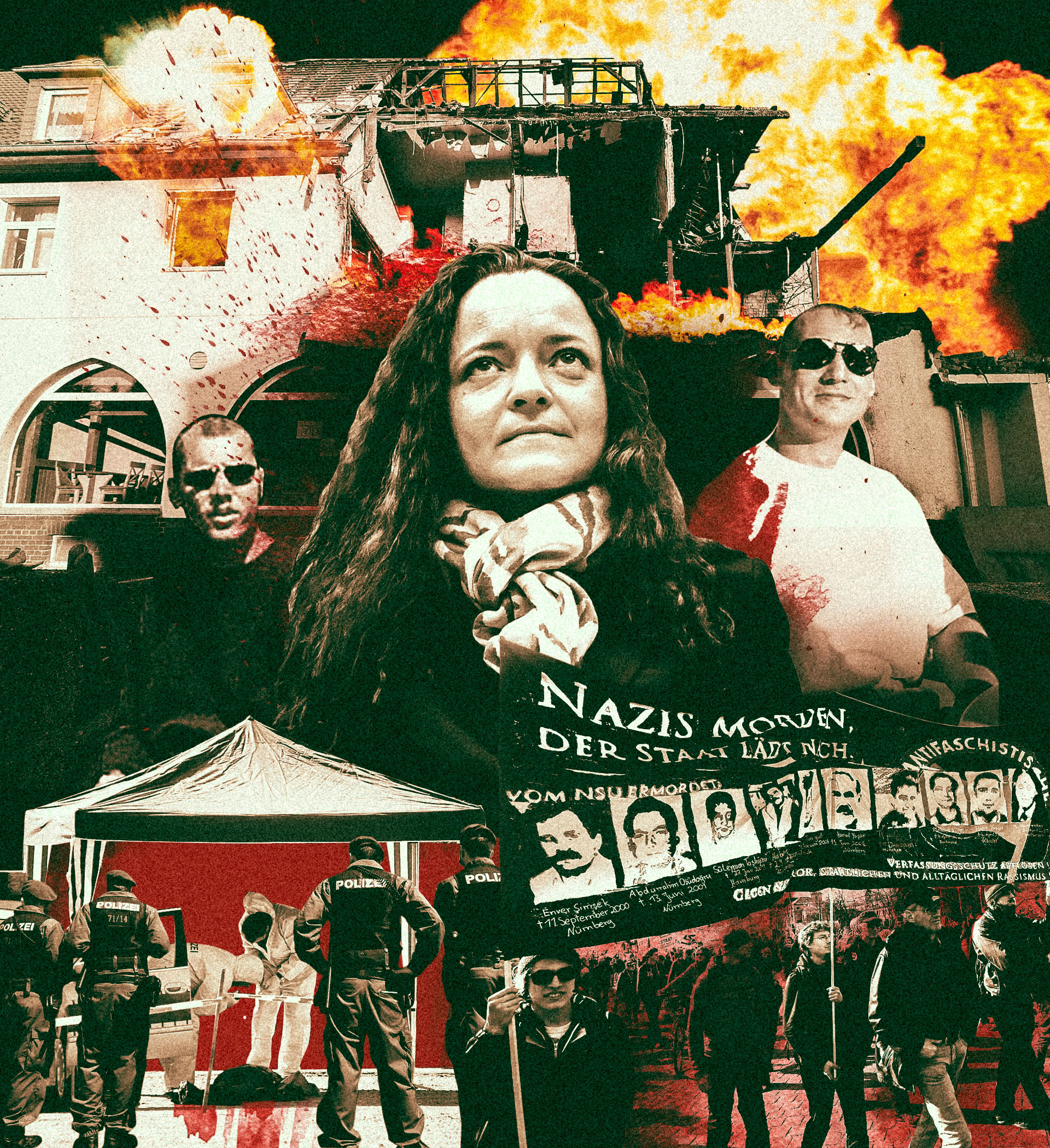 NSU CASE COVERED UP AND LEGALLY CLOSED: IS IT POSSIBLE TO AVOID SOCIAL AND POLITICAL REPERCUSSIONS?
NSU CASE COVERED UP AND LEGALLY CLOSED: IS IT POSSIBLE TO AVOID SOCIAL AND POLITICAL REPERCUSSIONS?
Teoman Ertuğrul TULUN 20.12.2021 -
 CONSTRUCTIVE EURASIANISM AND COOPERATIVE SECURITY: AVİM’S PERSPECTIVE ON THE BLACK SEA REGION
CONSTRUCTIVE EURASIANISM AND COOPERATIVE SECURITY: AVİM’S PERSPECTIVE ON THE BLACK SEA REGION
Teoman Ertuğrul TULUN 10.10.2025 -
 A GREEK PONTUS TV DRAMA MAKES MOCKERY OF HISTORICAL FACTS
A GREEK PONTUS TV DRAMA MAKES MOCKERY OF HISTORICAL FACTS
Teoman Ertuğrul TULUN 31.08.2020 -
 POPE’S VISIT TO AZERBAIJAN: A TEST FOR UNIVERSAL FRATERNITY
POPE’S VISIT TO AZERBAIJAN: A TEST FOR UNIVERSAL FRATERNITY
Teoman Ertuğrul TULUN 09.09.2016 -
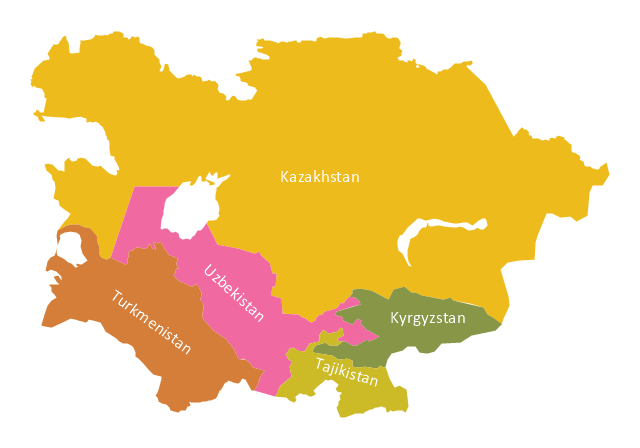 A QUARTER OF A CENTURY OF INDEPENDENCE OF CENTRAL ASIAN COUNTRIES: THE DEMOGRAPHIC QUANDARY
A QUARTER OF A CENTURY OF INDEPENDENCE OF CENTRAL ASIAN COUNTRIES: THE DEMOGRAPHIC QUANDARY
Teoman Ertuğrul TULUN 08.11.2016
-
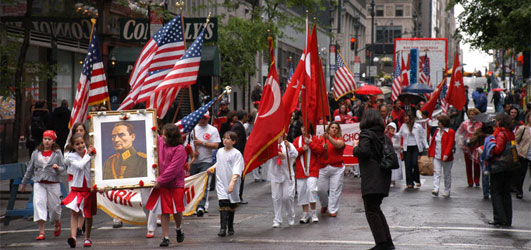 JOE BIDEN’S STATEMENT ON 1915 EVENTS: PURPOSEFUL POLITICAL ACTIONS MAY CAUSE UNANTICIPATED CONSEQUENCES, AN ANALYSIS FROM THE SOCIOLOGICAL VIEWPOINT
JOE BIDEN’S STATEMENT ON 1915 EVENTS: PURPOSEFUL POLITICAL ACTIONS MAY CAUSE UNANTICIPATED CONSEQUENCES, AN ANALYSIS FROM THE SOCIOLOGICAL VIEWPOINT
Teoman Ertuğrul TULUN 03.05.2021 -
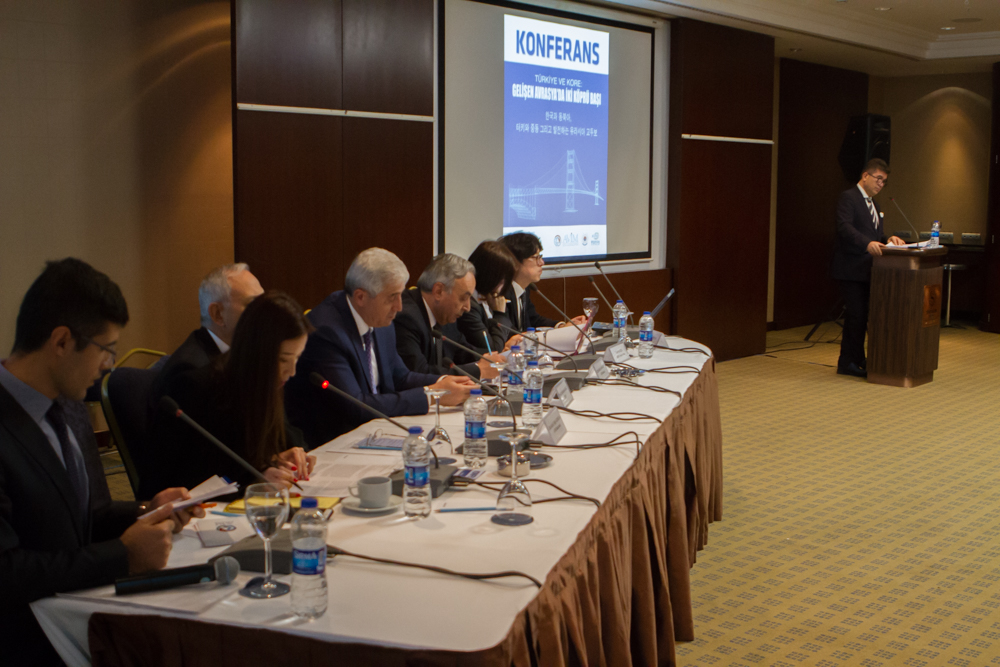 CONFERENCE ENTITLED “TÜRKİYE VE KORE: GELİŞEN AVRASYA’DA İKİ KÖPRÜ BAŞI” (TURKEY AND KOREA: TWO BRIDGEHEADS IN THE THRIVING EURASIA)
CONFERENCE ENTITLED “TÜRKİYE VE KORE: GELİŞEN AVRASYA’DA İKİ KÖPRÜ BAŞI” (TURKEY AND KOREA: TWO BRIDGEHEADS IN THE THRIVING EURASIA)
Vuslat Nur ŞAHİN 30.11.2017 -
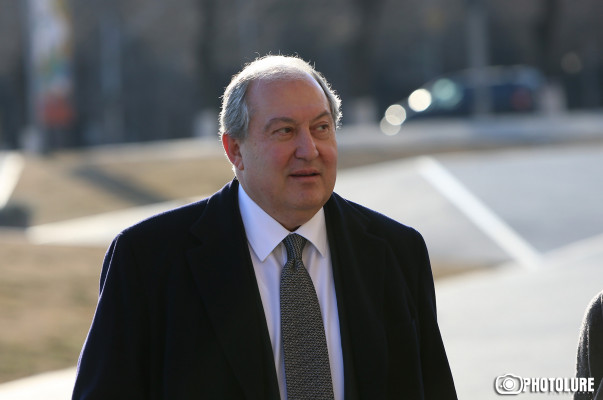 ARMEN SARKISSIAN’S PRESIDENCY AND THE QUESTIONS ON ETHICS AND POLITICAL CULTURE IN ARMENIA (26.01.2022)
ARMEN SARKISSIAN’S PRESIDENCY AND THE QUESTIONS ON ETHICS AND POLITICAL CULTURE IN ARMENIA (26.01.2022)
Turgut Kerem TUNCEL 26.01.2022 -
 WATER DIVINER: A FAIR PORTRAYAL OF WAR
WATER DIVINER: A FAIR PORTRAYAL OF WAR
Mehmet Oğuzhan TULUN 26.02.2015 -
AUSTRIA AND LUXEMBURG: EFFORTS TO REPAIR RELATIONS
Ömer Engin LÜTEM 04.10.2015
-
25.01.2016
THE ARMENIAN QUESTION - BASIC KNOWLEDGE AND DOCUMENTATION -
12.06.2024
THE TRUTH WILL OUT -
27.03.2023
RADİKAL ERMENİ UNSURLARCA GERÇEKLEŞTİRİLEN MEZALİMLER VE VANDALİZM -
17.03.2023
PATRIOTISM PERVERTED -
23.02.2023
MEN ARE LIKE THAT -
03.02.2023
BAKÜ-TİFLİS-CEYHAN BORU HATTININ YAŞANAN TARİHİ -
16.12.2022
INTERNATIONAL SCHOLARS ON THE EVENTS OF 1915 -
07.12.2022
FAKE PHOTOS AND THE ARMENIAN PROPAGANDA -
07.12.2022
ERMENİ PROPAGANDASI VE SAHTE RESİMLER -
01.01.2022
A Letter From Japan - Strategically Mum: The Silence of the Armenians -
01.01.2022
Japonya'dan Bir Mektup - Stratejik Suskunluk: Ermenilerin Sessizliği -
03.06.2020
Anastas Mikoyan: Confessions of an Armenian Bolshevik -
08.04.2020
Sovyet Sonrası Ukrayna’da Devlet, Toplum ve Siyaset - Değişen Dinamikler, Dönüşen Kimlikler -
12.06.2018
Ermeni Sorunuyla İlgili İngiliz Belgeleri (1912-1923) - British Documents on Armenian Question (1912-1923) -
02.12.2016
Turkish-Russian Academics: A Historical Study on the Caucasus -
01.07.2016
Gürcistan'daki Müslüman Topluluklar: Azınlık Hakları, Kimlik, Siyaset -
10.03.2016
Armenian Diaspora: Diaspora, State and the Imagination of the Republic of Armenia -
24.01.2016
ERMENİ SORUNU - TEMEL BİLGİ VE BELGELER (2. BASKI)
-
AVİM Conference Hall 24.01.2023
CONFERENCE TITLED “HUNGARY’S PERSPECTIVES ON THE TURKIC WORLD"









